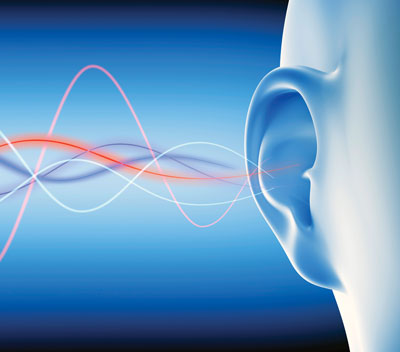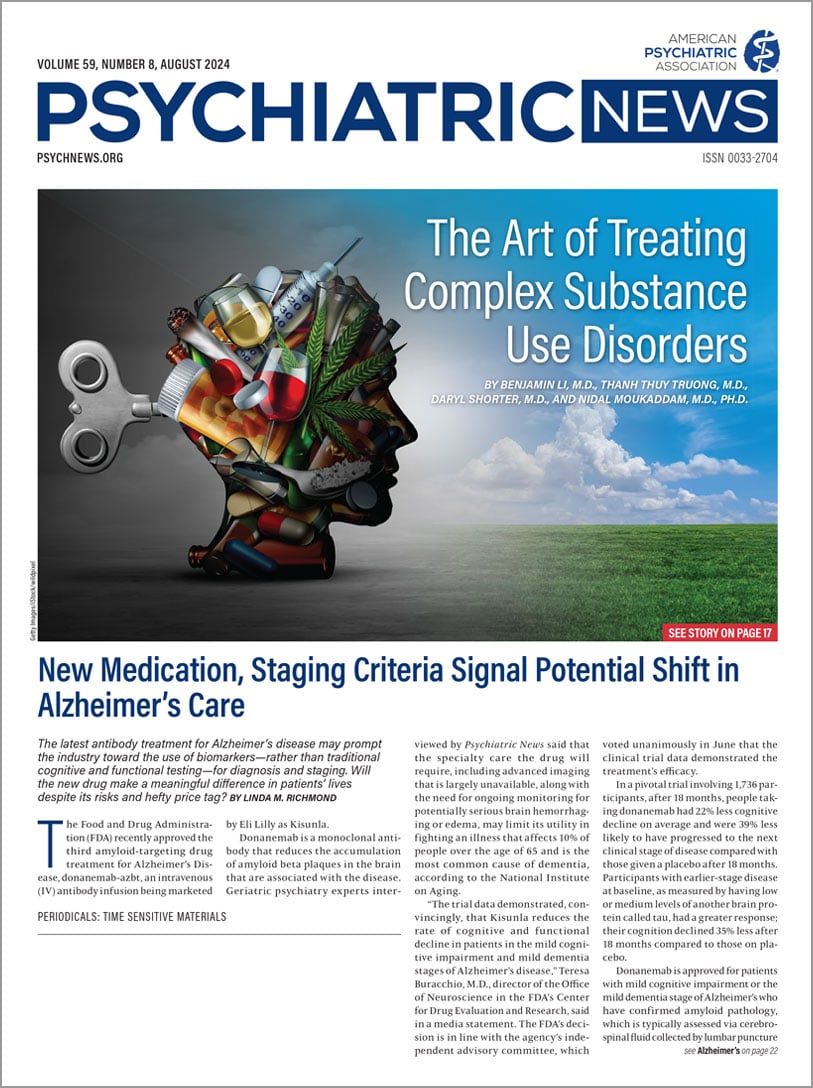Racial Implicit Associations Persist in Child Psychiatry
Significant racial implicit biases relating to Black children persist among many psychiatrists and trainees, a
study in the
Journal of the American Academy of Child & Adolescent Psychiatry has found.
Researchers at Yale University School of Medicine and colleagues analyzed data from an online survey of 235 psychiatrists and trainees that included two Implicit Association Tests (IATs). In each IAT participants viewed faces of Black or White children along with words on a monitor. The first IAT consisted of “good” words (joy, love, pleasure, etc.) and “bad” words (terrible, horrible, agony, etc.). The second IAT consisted of “internalizing” words (sad, depressed, withdrawn, etc.) and “externalizing” words (hyperactive, defiant, disruptive, etc.). Across multiple trials, participants were asked to sort the faces and words into two buckets (for example, put Black children and good words together and White children and bad words together).
Scoring was based on how quickly and accurately participants sorted the pictures and words, on the assumption that participants would sort strongly associated concepts more quickly and accurately than weakly associated concepts.
On the good/bad IAT, 44.3% of the participants had scores suggesting moderate to strong implicit association of Black child faces with “bad” words. However, Black participants had 79% lower odds of showing this implicit association than White participants.
On the internalizing/externalizing IAT, 41.7% of participants had scores suggesting moderate to strong implicit association of Black child faces with externalizing words. In this test, Black participants did not show significantly different implicit associations compared with White participants. However, female participants had around half the odds of showing an association between Black child faces and externalizing words as male participants.
“Racial biases that result in a negative assessment of behavior could affect the treatment options offered to patients and their families,” the researchers wrote. “Therefore, these biases … contribute to inequities in diagnosis and treatment.”
Late Payments, Sinking Credit Scores May Foretell Alzheimer’s Diagnosis
Financial troubles such as late credit card or mortgage payments and decreasing credit scores often precede a diagnosis of Alzheimer’s disease and related disorders (ADRD), according to a
report released by the Federal Reserve Bank of New York.
Researchers at Georgetown University and the Federal Reserve Bank compared data from Equifax with medical records from Medicare for more than 2.4 million older adults with chronic health conditions in the U.S.
Over an average follow-up of 14 years, 19.6% of the individuals were diagnosed with ADRD. In the year before diagnosis, they were 34% more likely to fall behind on credit card payments and 17% more likely to be late with mortgage payments compared with baseline. Their credit scores began to drop as early as five years before their diagnosis, with progressively greater declines as their time of diagnosis approached. Their credit scores were on average 2.7 to 3.7 points lower than baseline two years before diagnosis and 4 to 6 points lower than baseline one year before their diagnosis.
“Our findings lend urgency to the need for further consideration of the roles federal agencies and financial institutions can play in reducing financial risk among older households with undiagnosed memory disorders,” the researchers wrote. “Further, [they] point to the potential of using information on credit outcomes to develop machine learning algorithms for identifying individuals at risk for ADRD who should receive additional clinical evaluation to facilitate earlier diagnosis.”
Prazosin, Clonidine, Guanfacine All Decrease Stress-Related Nightmares in Youth
The alpha-1 antagonist prazosin and the alpha-2 agonists clonidine and guanfacine have similar effectiveness in decreasing nightmares among children and adolescents with posttraumatic stress disorder (PTSD) and other stress-related disorders, according to a
study in
Mental Health Clinician.
Researchers at Virginia Commonwealth University analyzed data from 59 patients aged 5 to 17 years who were admitted for inpatient psychiatric care between January 2015 and September 2021. All patients had a diagnosis of PTSD, other trauma- or stressor-related disorder, or unspecified anxiety disorder, and had nightmares related to their diagnosis.
Thirty-seven patients initiated treatment with clonidine or guanfacine (the alpha-2 agonist group) and 22 initiated treatment with prazosin (the alpha-1 antagonist group). Roughly 73% of all participants also took an SSRI. The primary outcome was a decrease in the frequency of patient-reported nightmares on two consecutive days (documented by provider or therapist).
Nightmares decreased in 91.9% of patients in the alpha-2 agonist group and 86.4% in the alpha-1 antagonist group, a difference that the researchers did not consider statistically significant. Both alpha-1 and alpha-2 medications took just over two days to reduce nightmares. However, within the alpha-2 agonist group, clonidine (1.59 days) had a faster time to nightmare reduction than guanfacine (3.18 days).
“Based upon our study, if pediatric patients are experiencing distressing nightmares, an alpha-2 agonist or alpha-1 antagonist can be considered as a symptom-management strategy in addition to a first-line agent such as an SSRI,” the researchers wrote.
Post-Discharge General Practitioner Visits Lower Risk of Psychiatric Readmissions
Patients who see a general practitioner after being discharged from an unplanned psychiatric hospital visit have lower rates of 14-day outpatient and inpatient readmissions, according to a
study in
General Hospital Psychiatry.
Researchers at the University of Southern Denmark used data from the Danish health care system to analyze unplanned (i.e. emergency) inpatient or outpatient psychiatric hospital visits in Denmark from March 2019 through February 2023. They also reviewed whether the patients had a visit with a general practitioner, either during regular business hours or through an on-call service, within 14 days of discharge.
There were 298,085 unplanned psychiatric hospital visits among 108,651 patients. Compared with patients who did not contact a general practitioner post-discharge, those who contacted a general practitioner during regular business hours had a 55% lower risk of having an unplanned outpatient revisit and a 57% lower risk of having an inpatient readmission. Those who used general practitioner on-call services post-discharge had a 13% lower risk of having an unplanned outpatient revisit and a 19% lower risk of having an inpatient readmission. Patients who had been in contact with a general practitioner in the two days before their unplanned psychiatric hospital visit were more likely to contact a general practitioner within 14 days of discharge.
“These findings underscore the potential efficacy of encouraging patients to engage in GP [general practitioner] appointments related to their mental health, offering a promising avenue for reducing inpatient readmission rates among psychiatric patients,” the researchers wrote.
Patients With PTSD More Likely to Have Auditory Illusions
People who have PTSD may be more prone to auditory illusions—false perceptions of sounds—than people without PTSD, a
study in the
Journal of Psychiatric Research suggests.
Researchers at Necker Hospital and Tenon Hospital, both in Paris, conducted a five-minute sound test on 30 adults with PTSD who had a score of at least 44 on the Post-Traumatic Stress Disorder Checklist Scale (PCL-5) and 30 matched controls without PTSD. The participants listened to 30 distorted, emotionally neutral words, were asked whether they recognized each one, and wrote down any words they heard. Hearing a word incorrectly was deemed an auditory illusion. The researchers then scored the emotional valence of each auditory illusion as positive or negative.
All told, participants with PTSD had a higher frequency of incorrect guesses (65%) compared with controls (20%), and an average of four auditory illusions per person compared with one per person for controls. The emotional valence of auditory illusions was more negative in participants with PTSD than controls, as well.
“The observed association between experiencing a traumatic event and [auditory illusion] suggests that trauma may affect perception beyond diagnosis,” the researchers wrote. “There appears to be a correlation between the severity of PTSD, as measured by the PCL-5, and auditory illusions, like what is observed with hallucinations. This suggests that hallucinations and illusions could potentially serve as markers of PTSD severity.” ■





